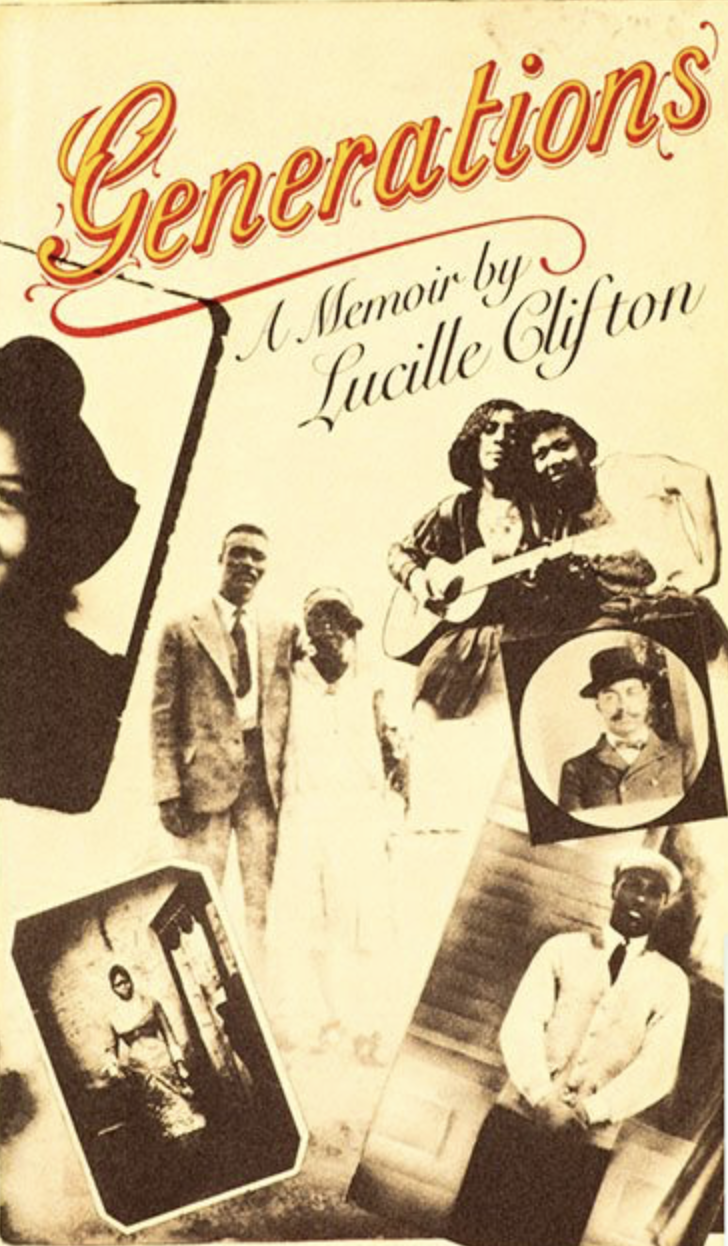Clifton’s was a working-class Black family with a prototypical migration story from the agrarian South (Bedford County, Va.) to the industrial North (Depew, N.Y.). Generations focuses primarily on the women of her paternal lineage, refracted through the storytelling of Clifton’s father, who repeats a refrain passed down from her great-great-grandmother: “Get what you want, you from Dahomey women.”
Alongside the exceptionalism of this refrain, which harks back to her great-great-grandmother’s origins in the kingdom of Dahomey (in present-day Benin), there is an abiding humility. Clifton prized her status as an “ordinary woman” (the title of her 1974 poetry collection) as an ethical stance. Her ordinariness was a loving pedagogy, a refusal to view herself as exceptional in contrast to the community she had come from. Clifton’s genealogy is not made from the stuff of historians and archivists, but rather from the myths and silences that every family holds. In this way, Generations is a tremendously important text, because it models an archival practice for ordinary Black people who have been robbed of their history.
Though not every Black family can trace their ancestry back to specific African nations, most of us know the contours of our ancestors through stories that fade in detail with each passing generation. These stories form lines that, in Clifton’s words, “connect in thin ways that last and last and lives become generations made out of pictures and words just kept.” The fadedness of these narratives can be frustrating: Clifton once asked her father for proof to back up their familial mythos, because “the time may not be right and it may just be a family legend.” Paradoxically, the court records and bills of sale in which her ancestors might appear would not make their memory feel any more alive—in fact, perhaps the opposite. The “thin ways” of remembering—photographs, incomplete stories, scraps of memory—carry the fingerprints of our dead more surely than the written records of the violence committed against them. As Clifton ultimately discovers, “In history, even the lies are true.”
Clifton’s memory work in Generations is inextricable from her deeper spiritual investigations in the 1970s. The memoir was first published in the same year that Clifton began to document the otherworldly communications of a variety of spirits, including her deceased mother. This gives the epigraphs to the various sections of Generations, all taken from Walt Whitman’s “Song of Myself,” an almost spectral resonance. Lines like “They are alive and well somewhere” and “To die is different from what anyone supposed, and luckier” mean something different when they are applied literally. In the case of Clifton’s writing, as in her spiritual practice, death is not the final word.
